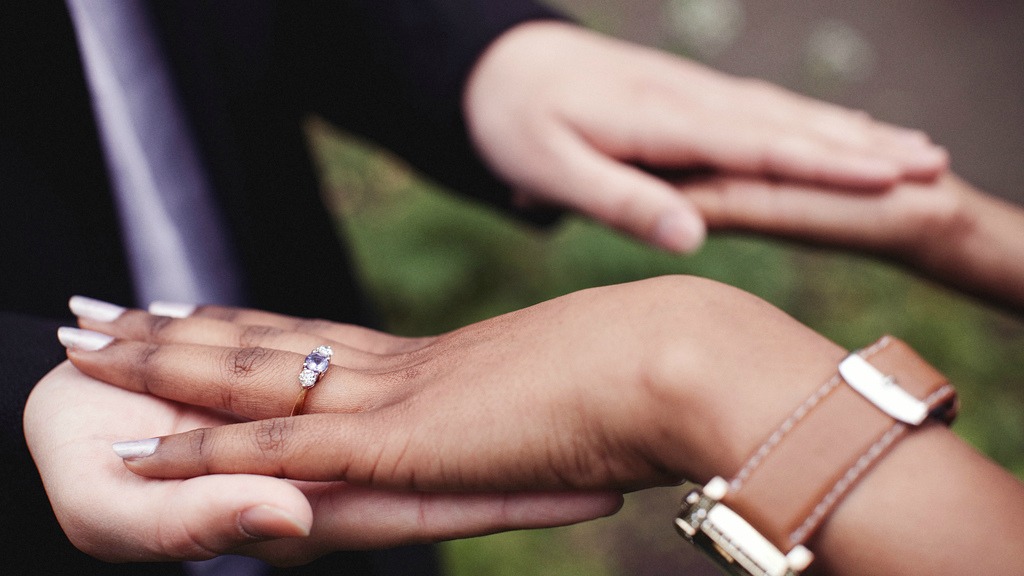For years, research has shown us "segregated churches breed segregated lives."
Part of me wants to reply, Oh, you don't say? What an obvious conclusion. If we segregate ourselves in our most intimate scenarios like church, we likely do the same in our friendships and dating relationships. These surveys, which reveal how frequent churchgoers are less likely to date someone outside their race, weigh a little more heavily on those of us who find themselves in the minority, or even the lone person of our race, at church.
A black woman attending a predominantly white church must find her security in the Lord. This, of course, is no different from anyone at any church. But I do think there is a unique struggle for a young, single, black woman. We have unhelpful comments from people like Taye Diggs "jokingly" perpetuating the stereotype that black women are harsh and hard to deal with. Or then there's the wrongheaded idea that black women are less physically attractive than other women. We battle with finding our identity in the Christ rather than the texture of our hair.
Black women must fight to ignore the lies of the world and seek the truth in God's Word about who we really are: his beloved daughters made beautiful through Jesus. Those who choose to attend a predominantly white church add another challenge for themselves, in essence choosing to remain single for some time. They have a unique struggle, that's often difficult and embarrassing to express.
When I was single, I mainly felt comfortable in my identity. I never felt ugly among my girl friends. I never aimed to fit into skinny jeans. These hips won't allow such a thing; God made me with feminine curves. But I did wonder if I would get married, and if I did marry, if his family would accept me. I wasn't sure. But I chose to stay in my predominantly white church because I was being fed the Word and that was most important to me.
Today I am married, and I did indeed marry a white man. We have experienced a rich marriage, and our cultural differences have not proven to be hindrances. We enjoy our own preferences for different food and music, but ultimately know that in Christ we are much more the same than different. Our marriage "works" because we have sought to understand what the Lord says about our personhood and identity. What I found interesting about the research on segregated churches breeding segregated lives is they determined that those who pray and read the Bible more often were more likely to date outside their race. Fascinating . . . but I'm not surprised.
God's Word tells us that we are all made in the image of God (Gen. 1:26). It dispels the myth that there is anything wrong with marrying a person of a different ethnicity. When some insist that it would be inappropriate for people to marry "outside their race," their beliefs reflect racism in their hearts and not God's design for mankind. God gives us a glimpse of his stance on this issue as he responds to Miriam and Aaron for confronting Moses for marrying a Cushite (Ethiopian) woman. God doesn't simply rebuke the two and send them on their way, he punishes them. Miriam's skin was turned leprous (Num. 12:1, 10).
The Lord didn't have to include that account in Scripture. I think it says something significant about his character and about the topic of interracial marriage. First, God is holy and will not have sin in his presence; he did not allow the sin of racism to go unpunished and swiftly took action. This is why we need a Savior. God is a just God. Jesus paid the price we could never pay for the sin we commit every day.
Secondly, God abhors racism. Miriam's skin was turned "leprous, like snow." Her punishment was directly related to her sinful prejudice against the dark skin of the Cushite people. I did a quick search to examine the effects of leprosy. (Not recommended.) Her punishment would change the way people viewed her. It would not affect the way they thought of her per se, but the way they looked at her. As Miriam once looked at the Cushite woman with distain, she would now know exactly what that was like.
What Miriam forgot, and what so many others still forget, is that all people are made in the image of God, we are all from the same Adam, and now we are all redeemed equally through Christ. Interracial marriage isn't merely acceptable; it reflects the beauty and glory of the gospel.
Through the gospel, we are reconciled first to God, then to one another. We are made brothers and sisters in Christ. We are counted as righteous. The gospel breaks the barriers that once divided us. The young black single woman in a predominantly white church should not have to be concerned about whether or not her decision to worship in community with people of another race will affect her future marriage potential.
As I write in United, until we obtain a robust understanding of the doctrine of man and the gospel that unites all nations, tribes, and tongues, we will not fully grasp the beauty of interracial marriage. Perhaps its name "interracial" should be changed to "interethnic" or "intercultural" as we are truly one race made up of many wonderful and unique characteristics. Catch that vision and watch the walls of hostility crumble at the foot of the cross.
Trillia Newbell is a freelance journalist, Christian writer, and author of United: Captured by God's Vision for Diversity (Moody, 2014). You can find her writing at trillianewbell.com. Follow her on twitter @trillianewbell.









